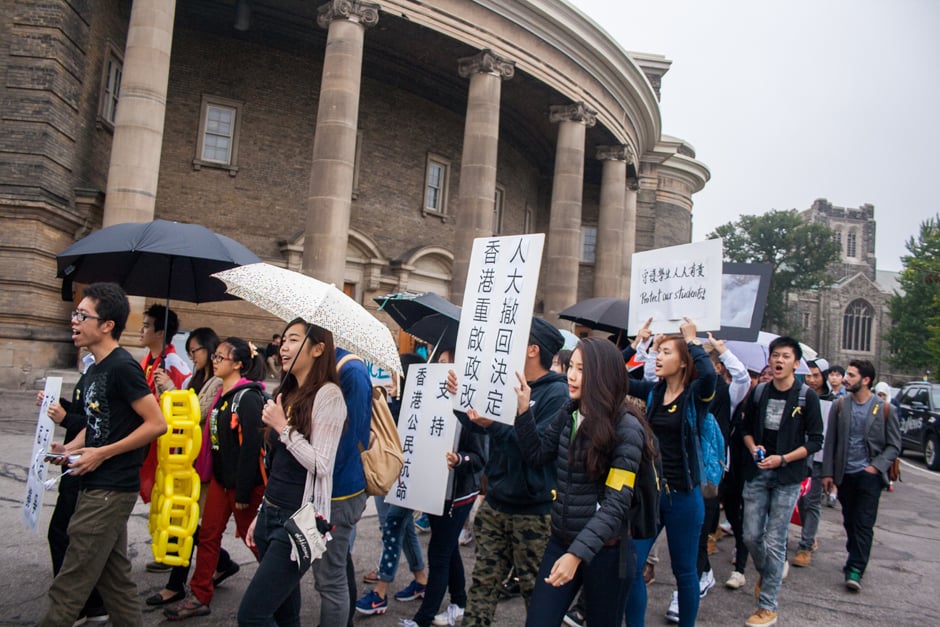While it’s important to spread information, be informed, and demonstrate an understanding of the issue, it would be inappropriate to co-opt the issue as though the original groups were unable to effect change themselves. As an outsider, it is only appropriate to take a stand for a group if they specifically ask for support and solidarity, under their own conditions, to ensure that I do not belittle their purpose or abilities.
— Melanie Wittes
There are revolutions going on all around us from pro-democracy protests in Hong Kong to anti-police brutality protests in Ferguson. What these events and the countless others around the world have in common are people who are motivated to make a change. In my own experience, I see that people usually take a stand when they have a personal stake in the matter — when it’s their own life on the line. Meanwhile, there are people who are far away from the line of fire who just sit back and watch; admittedly, I am sometimes one of those people. In 1963 Martin Luther King Jr. wrote an open letter titled “Letter from Birmingham Jail.“ There was one line in particular that resonated with me; he wrote, “Injustice anywhere is a threat to justice everywhere.” We should take a page from the books of great revolutionary leaders and stand up for what we believe in regardless of whether we’re personally affected. I take a stand when I see oppression anywhere.
— Zeinab Aidid
I take a stand when I experience, or notice, exploitation in the workplace.
In order to graduate with as little debt as possible, many students, myself included, find part-time jobs in order to lessen the financial burden after graduation.
Unfortunately, many employers see working students as easy prey and won’t hesitate to force us into working long hours, on minimum wage, with little to no breaks. This is why it’s crucial that we know our rights as part-time workers so that we can stand up to employers and managers who try to exploit us.
Did you know that in the hospitality sector, where most students work, a daily shift is capped at eight hours? And that if you’re scheduled for more than eight hours your employer isn’t legally obligated to pay you overtime? It’s these types of rules and regulations that students are typically unaware of and, therefore, don’t take an active stand against. This ignorance is what many employers rely on in order to exploit us into working in illegal conditions, without our knowing.
The importance of both knowing your rights and fighting for them is essential for working students. Fortunately, unions and labour laws are there to back us up in the ongoing fight for students to become respected and educated members of the working class.
— Emma Kikulis
Every week, The Varsity and Ask Big Questions U of T post a thought provoking question over social media to prompt students to start conversations about the things that matter most.


